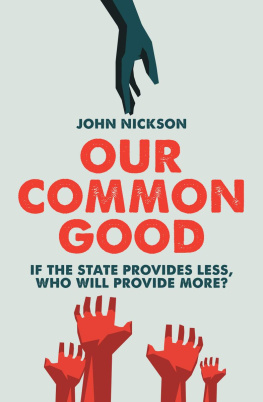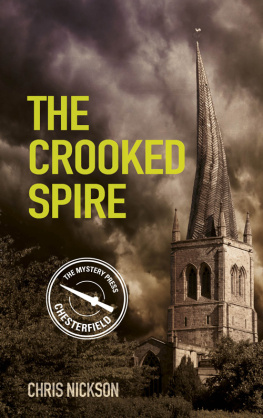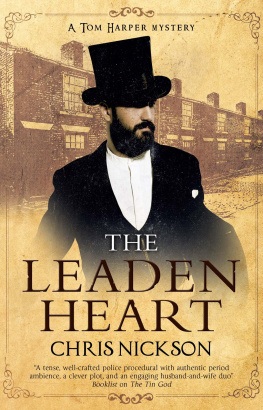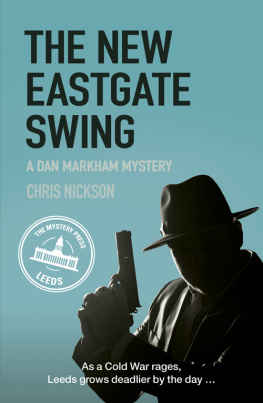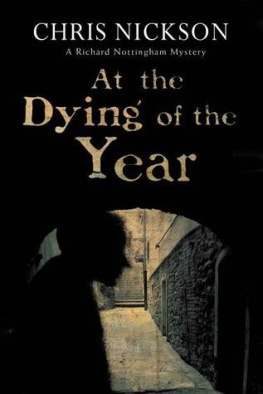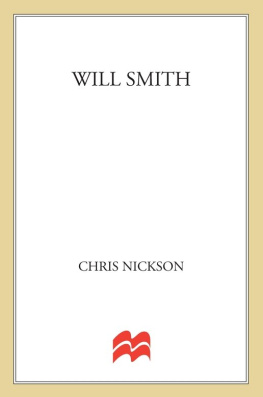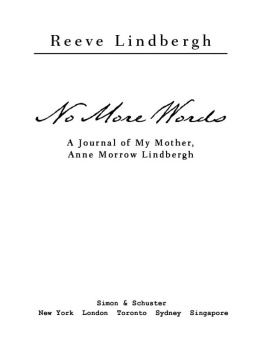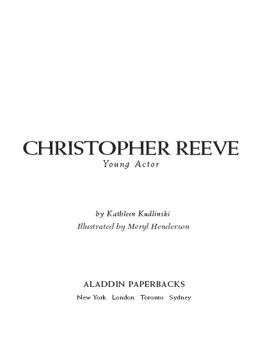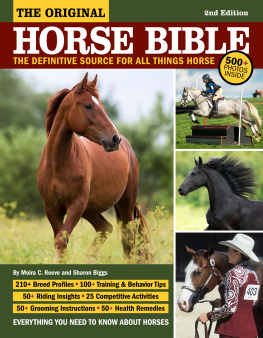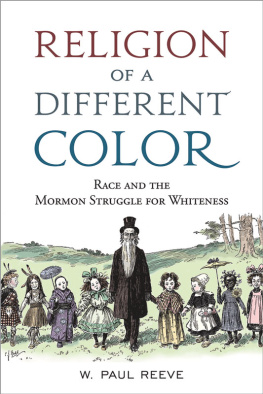C hristopher Reeve might have portrayed Superman in the movies, but no one had thought he might really be a superman himself. Until July 1995, that is, when he was thrown by his horse and left completely paralyzed.
For many people, that would have been the end. Theyd have simply given up. For Reeve it was a new beginning, an accident that really did transform him into a superman.
To many Americansindeed, to people around the worldhes become as symbolic in his wheelchair as he ever was in a cape. Hes refused to let his disability stop him; in many ways, its offered him a more complete and fulfilling life.
But hes always been someone driven to excel, to be the best at anything hes attempted. Thats been the case from boyhood on; whether academically, as an actor, or in sports, hes always been compelled to go one step further, to push himself and expand his own limits, even if its involved danger. So its entirely in character that he should come to view this as another challenge to be overcome.
I n the public eye, he would, and probably always will, be associated with one role: Christopher Reeve was Superman, the actor whod proved to be the perfect embodiment of the superhero, whod helped drag movies into the modern blockbuster age.
But that was as much myth as anything to be found between the covers of a comic book. The role had transformed him into a star, that much was true, but in terms of an acting career it had worked against him. It was a success he had to work very hard to live down.
By the time he was offered the part hed already been acting professionally for a decade. The money might not have been remarkable, and his name was hardly on the tip of every tongue, but hed learned his craft and proved himself to be very talented at it. The leading role in a big-budget film, especially one which dealt with such an archetypal American icon, was too tempting to refuse.
However fortunate it was at the time, it would become a millstone around his neck. For someone who saw himself as an actor, a person whose business was to transform himself into other people, typecasting was a terrible fate. The opportunities were there to become a major screen figure, but that held little interest for Chris. He wanted to do what he knew, what he loved act. He wanted parts that were interesting, that would offer a challenge.
Challenge was what he wanted in most aspects of his life. In appearance, on the surface, he seemed perfectly conventional. He dressed like the preppy he really was, having gone to good private schools, Cornell, and Juilliard. But inside there were turbulent forces at work. Extreme could almost have been his watchword. From the time he was able to afford one, hed owned his own plane, piloting himself around the country, around the globe. Skiing, cycling, horse riding. He thrived on pushing himself. Had he not been that way, thered have been no accident. Nor would there have been Christopher Reeve.
Prior to falling from his horse, Eastern Express, on that day at Commonwealth Park in Virginia, Chris had slowly been reestablishing himself as a film actor, turning around a career that had seemed in terminal decline. But coming back so rapidly, and so stronglyeven if he was still in a wheelchair, unable to move more than his headsomehow lent him a new stature and a measure of gravitas.
Hes undertaken his first full directing assignment, the HBO television movie In the Gloaming (Chris had previously directed the second unit on one of the films hed starred in), and his voice has been heard in any number of settings, whether on the Academy Awards, exhorting filmmakers to create better roles, at the Democratic National Convention in 1996, in hearings regarding medical insurance for Americans, or as a standard-bearer for research into spinal cord injuries.
This is the mature Christopher Reeve, enjoying the third phase of his life. The desire to do it all would have been there anyway, given his nature, but its been heavily bolstered by his wife, Dana Morosini, their son, Will, and Matthew and Alexandra, his children from a former relationship with Gae Exton.
When he was brought into the University of Virginia Medical Center in Charlottesville, Chris had been wearing a chain around his neck with a pendant that read just Faith. Hed always had faith in himself, and he would need it more than ever. The pendant was passed to Dana, who wore it along with his wedding ring. It was faith that bound them, and faith that would keep them moving along. And its faith in life thats kept Chris pushing ever since.
In Superman: The Movie it was easy to suspend disbelief, to think that Chris really could save the world, turn back time, spend years in his Fortress of Solitude taking in the knowledge of the universe. It was easy to see in Chriss characterization the strong streak of decency that was a part of his natural makeup.
He touched people then, and if, when the lights went up, they knew it was just a movie, many of them wanted to believe in the idea of Chris as a superman.
In the time since his accident, thats the chance hes given them. His courage and determination have made him into everything the comic-book Superman ever was, someone who refuses to accept limitations, who by his own behavior and standards has become an example and role model for others.
A merica remains a young enough country that many of its citizens feel the need for a sense of history, a background and identity, the knowledge of where their ancestors came from before appearing on these shores.
Its a connection to the past the United States alone cant offer. Most often genealogical research confirms that emigration was the only chance a family had to evade poverty, starvation, or some other type of cruel death. The poor, tired, hungry, and the huddled masses have found welcoming arms in America for more than two centuries, even if the barriers are now starting to rise.
For some, however, the past reveals surprising amounts of wealth and power. Christopher Reeve is one of those people. His bearing and patrician good looks seem to indicate a moneyed backgroundwhich he hadbut its hardly nouveau riche. The privilege dates back generations.
On his fathers side, Chris can trace the lineage all the way to thirteenth-century France, where the DOlier family was nobility, appointed to any number of lucrative offices by the kings. Inevitably, the French Revolution of the late eighteenth century made a number of changes. Many of the hereditary aristocracy lost their lives. Most others lost their titles, wealth, and land. Even those who clung on didnt have an easy time.
Chriss great-great-great-grandfather, Michel DOlier, was born in France after the Revolution, after the Napoleonic Wars that left the country much poorer and looking for a way to climb into the nineteenth century under the Bourbon kings. As a young man he met an Irish girl and moved to her homeland, specifically county Mayo, where his son, William, was born.
If France after Napoleon had seemed like a shattered place, then Ireland in the middle of the nineteenth century must have been like one of Dantes circles of hell. The blights of the potato crop, the mass evictions by absentee landlords, and the failure of the British government to offer any real help had left the population decimated, smallholdings in ruins. Anyone who could headed west, to the land of opportunity.
William DOlier was among them. Landing in New York with a little money, he made his way to Philadelphia. He was better off than many of the new immigrants, with some money and some skill, which he invested wisely to start the first of his cotton mills. Soon there were more, a small empire, which would bring him riches, and his heirs power.


